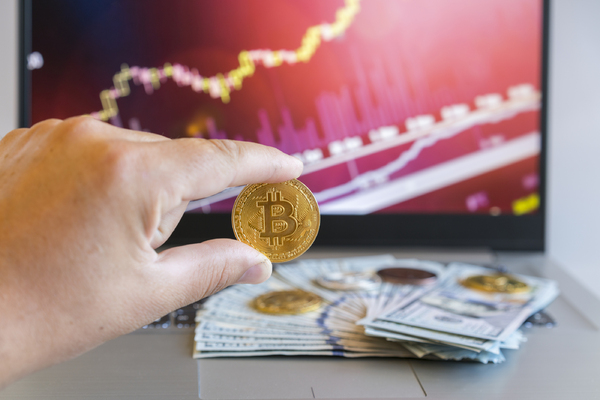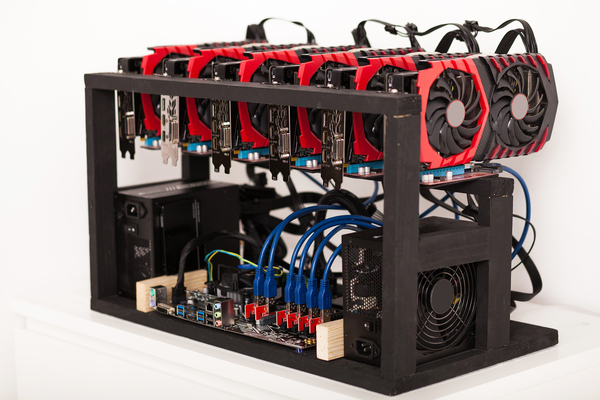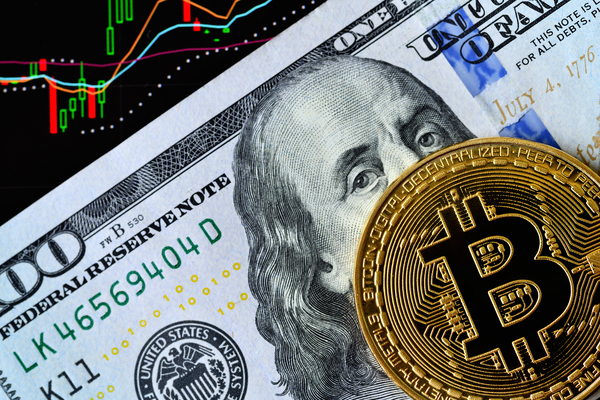
In 2017 we watched the price of a single bitcoin surge to $20,000. In 2018 we watched as it plunged to $4,000. Since the lows its price has doubled, and at $9,000 one bitcoin is worth more than six ounces of gold.
It makes people wonder why is bitcoin is worth so much? Where does its value come from? Those who own bitcoin probably wonder why its price is so volatile.
Keep reading to get the answer to these and other questions regarding the value of bitcoin!
Perceived Store of Value
Economists say an asset has value if it has both scarcity and utility. Scarcity means there is a limited and finite supply of something, and bitcoin meets that requirement with its cap of 21 million bitcoin.
There are analysts who claim this cap makes bitcoin more valuable than other cryptocurrencies, and even more valuable than physical assets like gold. One reason they give is that we won’t have to worry about a digital gold rush where a huge trove of bitcoin is suddenly discovered, causing the price to plunge in response to the sudden massive increase in bitcoin supply.
We’ve established that bitcoin has scarcity, but does it also have utility?
Certainly, it can be used as a transactional currency. That gives it utility. There are also those who believe bitcoin can become a far more efficient commodity when compared with existing commodities. Bitcoin proponents point out several positives.
The first of these is the decentralized nature of bitcoin that keeps it safe from any person, financial institution, or even government to control it. This keeps it safe from corruption. It is also trivially divisible, so it can be used to buy anything from a cup of coffee to a Lamborghini with equal ease. Finally, it is built on open-source programming code, allowing anyone to examine or even modify the codebase. This keeps bitcoin constantly improving and evolving.
These aren’t intrinsic uses, however, and bitcoin skeptics often make a point of this. Take gold for example. We attribute intrinsic value to gold because it has industrial uses.
However, a closer look shows that gold really doesn’t have great intrinsic value. In 2016, according to data from the World Gold Council, only 15 percent of the world’s gold went towards industrial uses. The rest was made into jewelry, coins and gold bars, things that only have value because people trust them to remain valuable.
People can have trouble seeing bitcoin as having value because it can’t be held in the hand like gold. However what many people overlook is the fact that many businesses today are built around digital trust, and that includes our legacy financial systems.
Mining Costs add to Value
 It’s been well documented that bitcoin mining costs are exorbitant and rising. Energy costs currently account for 90-95% of the mining cost of bitcoin and is a critical piece when determining mining profitability. And mining profitability is crucial in attracting more miners and growing the size of the bitcoin network, which adds value based on Metcalfe’s Law.
It’s been well documented that bitcoin mining costs are exorbitant and rising. Energy costs currently account for 90-95% of the mining cost of bitcoin and is a critical piece when determining mining profitability. And mining profitability is crucial in attracting more miners and growing the size of the bitcoin network, which adds value based on Metcalfe’s Law.
All of which begs the question of whether increased mining costs add to bitcoin’s value.
Even if energy costs were to remain the same or decline, the difficulty for mining a single block of bitcoin continues to increase. This difficulty increase also raises bitcoin’s hash rate and by extension the security of the Bitcoin network.
Also contributing to increased mining costs has been the halving of bitcoin rewards every four years. This makes miners work harder and historically has led to higher bitcoin price.
At the end of the day, energy costs are the major component of the price of bitcoin and have remained a barrier to new entrants to the bitcoin mining ecosystem. This also increases the scarcity of bitcoin and helps support higher prices.
Bitcoin: the Reserve Currency of Crypto
At its heart bitcoin is a peer-to-peer payment system. It has also come to fill another vital role in the cryptocurrency ecosystem. The role of a reserve cryptocurrency.
There is no issuing authority of government behind bitcoin, but it has evolved into the primary store of value for the crypto-ecosystem, similarly to the way the U.S. dollar has evolved over the years into the reserve fiat currency of the world.
There have been some who say bitcoin has no intrinsic value, but in truth neither does fiat currencies, which only hold value because people put trust in the issuing authority.
In addition, bitcoin pundits claim the cryptocurrency does have intrinsic value simply based on its relationship with other cryptocurrencies, some of which find their own value pegged to that of bitcoin.
Most promising of all, bitcoin is not likely to ever use fractional reserve banking to inflate its worth, making it a solid store of value and reserve currency.
Bitcoin as an Alternative Global Currency
 Linked to its reserve currency status and its standing as a store of value is one additional characteristic of bitcoin that could see it become a global currency.
Linked to its reserve currency status and its standing as a store of value is one additional characteristic of bitcoin that could see it become a global currency.
That characteristic is its value as a programmable asset. Unlike our legacy financial infrastructure, which has accepted some workarounds to function in the new digital age, bitcoin is natively digital and has shed the constraints placed on finance by the physical world.
We now have the very first programmable asset in history.
Here are two examples of bitcoin features that make it eminently suitable as a global currency: time-locked transactions and multi-signature transactions.
- Time locked transactions allow bitcoin to be sent to an address with the instructions not to allow it to move from that address until some predetermined point in the future.
- Multi-signature transactions allow bitcoin to become locked in an address until two-of-three or four-of-seven people agree it can be moved.
This value as a programmable asset has the potential to lead to mass adoption, and mass adoption could lead to bitcoin being used as an alternative global currency without boundaries.
How Much Could One Bitcoin Be Worth?
Bitcoin price predictions have run the gamut from $1 million to worthless. The truth is almost certainly somewhere in between these extremes. Bitcoin isn’t likely to crash and burn now. It has become too much a part of the global financial fabric. Nor is it likely to reach $1 million any time soon, or even ever for that matter.
It isn’t possible to know the future what bitcoin is concerned. There are just too many variables to accurately predict where the price might be in six months, or a year, or a decade from now.
So, we might not know how much a bitcoin will be worth in the future, but it’s pretty certain it will be worth something. And given the features, characteristics, and optimism over the digital currency revolution that value could well be higher than it is today.
Additional Reading:
- How to Use the Store of Value (SoV) Thesis to Evaluate Bitcoin
- Digital Asset Valuation: Top 7 Metrics for Valuing Bitcoin, Altcoins, and Cryptocurrencies
- Top 20 Industries Blockchain Will Disrupt
Don’t let blockchain developments get ahead of you. Subscribe to Bitcoin Market Journal to keep up-to-date on the value blockchain tech is adding to society!

